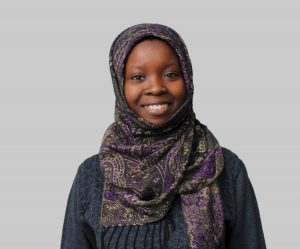Reporter's note
 I got into journalism because of my desire to tell some of the most important stories from my country, Nigeria. This project was an opportunity to do that, and to learn and revisit many of the things I thought I knew about women who return from Boko Haram captivity.
I got into journalism because of my desire to tell some of the most important stories from my country, Nigeria. This project was an opportunity to do that, and to learn and revisit many of the things I thought I knew about women who return from Boko Haram captivity.
My motivation came from the questions I had about the conditions of women and girls who managed to flee or get rescued from Boko Haram. Many of the reports and stories I read were about their experiences in captivity, but I wondered what life was like for them after Boko Haram.
In doing this project, I learned more than I set out to. I met women who despite experiencing the most harrowing things remain strong. I had not expected them to be so strong and it caught me off guard a number of times. But what stayed with me for even longer was how generous they were, sharing everything, from their time to their food, their patience in answering my questions and how much they were willing to tell me. They didn’t have to, yet they did.
I was able to do this project as a result of immense support from the Diane King Stuemer award, which funded my entire research.
I was also able to complete this because of the help I received from many people.
Very special thanks to my project supervisor, Susan Harada, for everything, from her encouraging words to her unending support.
I am grateful to Klaus Pohle for his continuous interest in the project and for helping to critique my first set of story ideas.
I am grateful to Allan Thompson for helping to answer some of the questions I had in the field and for sharing tips I found very useful as I started to do interviews.
I am grateful to the people in Adamawa state who helped to connect me with the women; Auwal Bashir of ActionAid Nigeria, Abubakar Buba, Odera Okakpu and Salihu Ahmed. I am also grateful to Lionel Rawlins and my friend, Blessing Douglas for making my return to Yola very comfortable.
I am grateful to my parents for listening to me through my moments of exhaustion and excitement.
I am grateful, to my sister, Aisha Sogbesan, and my friends Hazla Musa and Sherifat Akintude-Shitu who helped me to translate my interviews. I am also grateful to my many other friends who were always there, cheering so loudly during the difficult times.
I am grateful to Steve Devitt for listening to my thoughts, and for his suggestions and feedback.
Finally, I am most grateful to Maryam, Asabe, Fatima and Rukayyah for their kindness, for sharing their stories with me and for teaching me so much in the little time we spent together.
They all currently don’t read or understand English. So they will probably never get to read this project. But it is still dedicated to them, as well as to all the women and girls who return from captivity, and struggle to survive in communities that are nursing deep wounds of their own.
I hope this project helps to bring attention to their struggles and comes close to helping them get the help and justice they need and deserve.